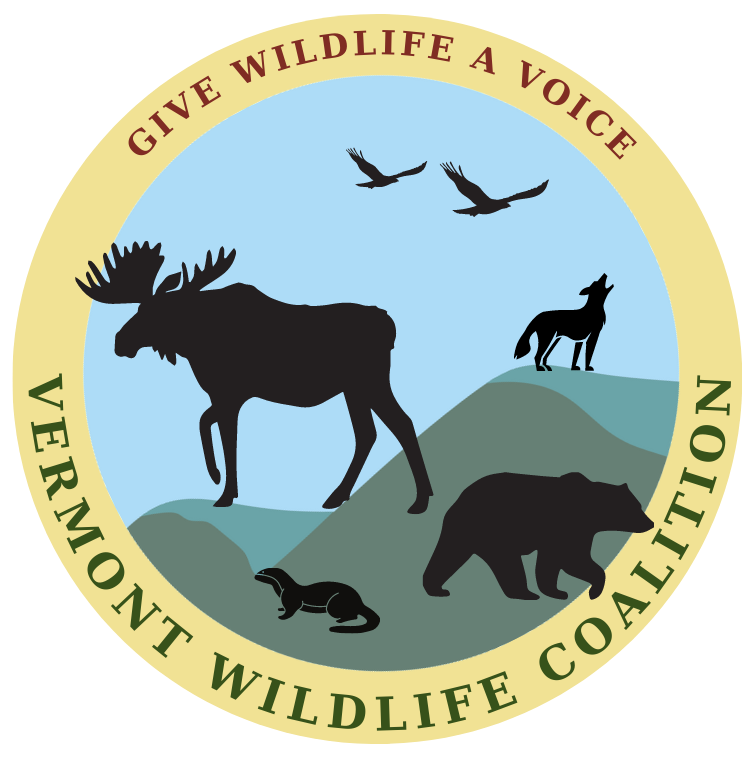by David Kelley
David Kelley is Vice Chair of the Vermont Wildlife Coalition
The article below was written in response to seeing an image of a bobcat that had been shot and killed for recreation.
When I was twelve years old I was allowed to go hunting alone. I had a Stevens single shot 410, but in one of my earliest forays in the woods I took my father’s 12 gauge shotgun. I remember almost every detail of one part of that day. It was a warm, sunny autumn day. Most of the leaves were off the trees. I saw a squirrel leap to a branch a few yards in front of me. Without thinking, I raised the gun and shot. The squirrel was so close the birdshot didn’t have time to spread. The squirrel was dead with just a big hole blown in the center of its body. There was no way it could be eaten, and I just left it.
Hemingway wrote “what is moral is what you feel good after, and what is immoral is what you feel bad after.” I don’t know if that is really the litmus test, but I remember to this day how I felt. Even as a twelve year old I could feel I had done something wrong. I have grown to have an abiding respect for those who hunt with skill and care. A hunter hasn’t paid someone else to kill his food for him. A hunter knows his quarry was born free, lived free, and was never subjected to the hideousness of factory farms, cattle cars or slaughter plants. When people share images of animals I wondered why that bobcat was killed.
In all of the years I have spent in the woods I have only seen one bobcat. It was toward the end of the day. I was in Glover with my father. He spotted it first and we were both thrilled to catch a glimpse of it. There is still to this day something awe inspiring about these animals and the struggle and strength it takes to survive in the wild, their unfettered freedom, and the harsh beauty and simplicity of their lives.
I practice law for a living. I have spent a good deal of my career thinking, and arguing, about the difference between right and wrong, legal and illegal, ethical and unethical. I think most grown ups understand that being legal isn’t necessarily right. Slavery was once legal. Beating children was once legal. Morality asks us to ask the fundamental question “why”?
Bobcats eat mice, moles and rodents. Those mice, moles and rodents spread ticks and lyme disease. Those ticks threaten our deer, moose, domestic pets and even humans. The bobcats and foxes that help control an increasingly dangerous tick population are doing us a great service while they are alive. I don’t know what good they do dead. Nobody I know eats fox or bobcat. New Hampshire hasn’t allowed bobcats to be hunted since 1989.
Our fish and wildlife are a public trust, but the rules of right and wrong regarding fish and wildlife are made by a small, lay person Board, chosen in a seemingly incestuous process where qualified applicants do not even receive an acknowledgment of their application, much less notice that they haven’t been chosen. The result of this process is a Board impervious to change or public interest. It refuses to end any abusive hunting practices including killing contests, no bag limits, or even 24/365 open seasons for some species. As human technology evolves some of that technology, such as smart rifles, drones, GPS systems, radio collars and live action trail cams makes it even more imperative that we begin a more open, transparent and public conversation about the rules and ethics around hunting and wildlife.
We live in a world where most of us hope and try to make things better. I think I can say with confidence that most Vermonters are opposed to unreasonable and unnecessary waste or cruelty toward wildlife. The vast majority want fact based, science-based governance of wildlife. If, in our governance of fish and wildlife we can’t ask that all-important question “why” more openly and more often, then hunters will eventually become the so-called “antis” – anti science, anti wildlife and anti public interest and Vermont’s hunting tradition will be forever diminished.

